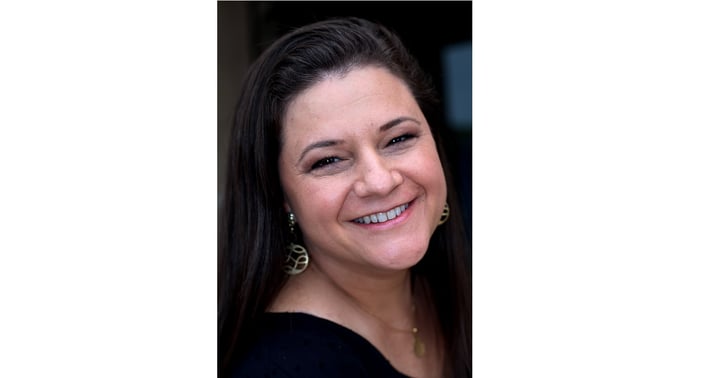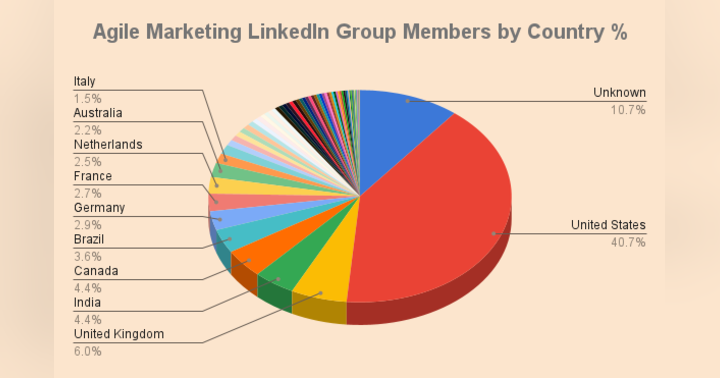Melissa Ribeiro de Almeida On The State of Agile Marketing In Brazil

Melissa Ribeiro de Almeida is an agile consultant at Pmweb, a company that specializes in CRM and marketing services and technologies, which is part of the WPP Group through a partnership with VML. And she is a subject teacher; “Digital Business” and “Strategic Planning in Marketing” from the Postgraduate Course in Communication and Marketing for Digital Media at Centro Universitário Estácio Juiz de Fora. And teaches the agile marketing certification at the AIB Institute. Melissa lives in Juiz de Fora, Minas Gerais, Brazil and took the time to answer my questions for the Global Agile Marketing Blog about the state of agile marketing in Brazil.
Melissa Ribeiro de Almeida LinkedIn
John: Can you tell me about some companies that have adopted agile marketing in Brazil?
Melissa: In Brazil, what I notice is that companies that adopt agile marketing are larger companies. Maybe because many people still confuse agile with scrum and scrum requires a certain team structure, such as having a PO and a Scrum Master, for example. I know that companies like Pmweb, Azul, Renner, Dotz, Algar Telecom, Localiza, Itaú and Globo use agile practices. Agile marketing is still very incipient in Brazil. We have some initiatives and success stories, but there is still a lot of progress to be made. Above all, because what I see is people making little investment in training and knowledge. Many companies end up adopting agile marketing based on what they heard about it or what they read on the internet and believe that what they do is agile, but they do not truly adopt agile management. Others are agile even without knowing they are. There is a lack of information regarding what agile marketing is.
John: What percentage of companies do you think are using agile marketing in Brazil?
Melissa: I am not aware of a survey carried out in Brazil, any report that provides data specifically on the use of agile marketing in the country.
John: In our previous conversation, you mentioned that you've seen a lot of interest in agile marketing from the financial sector. Why do you think agile marketing works so well for banking and finance companies?
Melissa: As I reported previously, I realize that, in general, larger companies end up standing out in adopting agile marketing in Brazil. Perhaps companies in the financial sector have exactly this more robust structure. Perhaps the necessary proximity of the marketing team to the technology teams in companies that have a technology and a data structure that is very decisive for the core business is the factor that is contributing to this scenario. And fintechs are exactly that. But this is just an assumption, based on my observations and conversations I have with people who embrace agile marketing. We still do not have studies in Brazil that can describe and analyze this scenario with greater precision.
John: What types of adoption have you seen with examples? Scrum, Kanban, Hybrid?
Melissa: In general, I see companies adopting scrum. I think because scrum is the best known framework. But people often say that they are adopting scrum just because they work in sprints or because they do retrospectives, but when you look deeper, you realize that they are actually not adopting agile. Others say they use Kanban, but in fact they just use a kanban board and do not adopt the Kanban method. Scrum does not always work for marketing teams, however, due to lack of knowledge, companies often want to adopt scrum believing that it is the only option for practicing agile. Most companies that are successful with the agile model use Kanban or a hybrid model, such as scrumban. Scrum also works in marketing teams, but it is not suitable for all types of marketing. When we talk about marketing related to content production, CRM, social media, scrum has not responded well, as there is greater difficulty in team planning and scrum requires minimal planning. However, when we talk about marketing activities in the development of products, websites, applications or videos, for example, scrum ends up being more appropriate because it is possible to work with minimal planning. I think that choosing the best method or framework is fundamental to the success of agile marketing, but I feel that not all teams are prepared to make this choice.
John: In Brazil, how is the adoption of agile marketing impacting marketing transformation? How do c-suite leaders respond to agile marketing adoption? Is there more transparency and communication between the marketing department and executive leaders?
Melissa: Companies that adopt agile marketing can achieve surprising results. Speaking from my experience, I see teams with much greater control over their activities because we increase transparency in the team, people communicate more, they have a greater understanding of their work goals and the results they need to achieve, they gain more speed in deliveries and they can correct their route much more quickly. The constant review of processes leads marketing teams to create more assertive strategies and solutions, ensuring better results. In general, I see that leaders and the C-suite support these initiatives and see the results they bring. I feel that there is more transparency and communication between marketing and executive leaders.
John: In Brazil, which organizations are supporting agile marketing, any meetings? Online sites or bloggers?
Melissa: There are several organizations that deal with agile management in Brazil, but we still have very few specifically focused on agile marketing. At AIB Institute we have a very complete training path on Agile Marketing and we have started a movement to spread agility more widely to marketing teams. We hold meetings and training sessions to bring together marketing professionals and discuss their biggest challenges, initiatives, best practices and success stories. I am a trainer on the Agile Marketing training track and I have made an effort to bring together professionals who work or want to work with Agile Marketing to exchange experiences.
John: What do you think is the future of agile marketing in Brazil?
Melissa: I think we will inevitably see agile marketing grow in Brazil. We are already seeing it, however, I believe that in the coming years this process will accelerate even further. This is because I believe that traditional marketing simply no longer fits in the world we live in today. Demands are increasingly urgent and change all the time, planning needs to be adaptive, teams need to communicate more, information needs to be more transparent, both within a team and between customers and marketing teams, learning from data and Experiments are what have brought us assertive solutions, focusing on results is a requirement today, knowing how to work in multidisciplinary teams is urgent! For all these reasons, even if people do not know that they are adopting agile marketing, they will be adopting certain agile practices in their daily lives because these practices respond better to current requirements.









